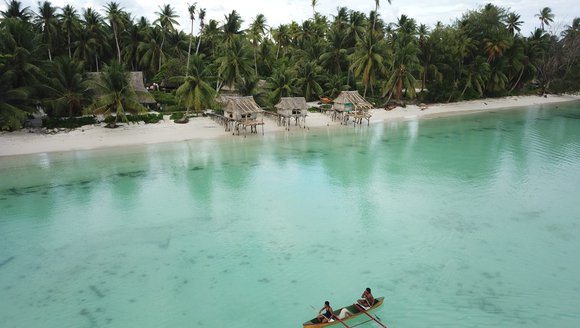Resources to Support Climate Adaptation in Fisheries
Planning for climate resilience in fisheries.
Forward-looking assessments of climate resilience require information on how climate risks and vulnerabilities will evolve, their potential impacts on marine ecosystems, communities, and fisheries infrastructure, and social, economic, and cultural conditions that influence vulnerabilities or adaptive capacity.
Planning ahead
Fishery systems and fishing communities will experience climate impacts differently. The systems set up around fisheries also differ greatly — while some governance systems may include participation by a wide range of stakeholders, others may not; some may allow for flexibility in policies and regulations, others may be more rigid. Moreover, the cultures and economies tied to fisheries influence how practices can transform as conditions change.
By drawing upon local knowledge and taking a systems approach to understanding impacts of and responses to climate change across ecological, social, economic, and governance dimensions of fisheries, communities can identify climate hazards and impacts, assess vulnerabilities and resilience attributes, and evaluate adaptation and resilience strategies.
What is resilience?
Resilience is the capacity to prepare for, resist, cope with, recover from, or adapt to a given stressor to ensure the sustainability of marine ecosystems, fishery resources, and human benefits.
In many regions, there is on-going work to transform fisheries systems to incorporate climate change into planning and practices to foster resilience. We highlight some examples and resources here, and will continue to update this page with new information.
If you have examples or resources to share, please reach out to the FishSCORE2030 team listed at the bottom of this page.
Toolkits
No one set of strategies will work for every fishery system. Adaptation actions should meet the resilience goals of a fishery or community, address the climate impacts that system is experiencing, and avoid marginalizing or disenfranchising of any group of people. The climate resilient fisheries toolkits listed above are each designed as frameworks to guide communities through the process of assessing their unique fishery systems and the climate impacts they are facing in order to develop appropriate actions.
Return to the FishSCORE2030 home page.
Coordination Group
Read More
-
![FishSCORE2030: Supporting Climate-Resilience in Fisheries]()
FishSCORE2030: Supporting Climate-Resilience in Fisheries
GMRI Research Scientist Dr. Kathy Mills is leading a new collaborative effort to build an international network of scientists, stakeholders, and practitioners who will identify …
Tidings
-
![Supporting climate-resilient fisheries during the UN Decade of Ocean Science]()
Supporting climate-resilient fisheries during the UN Decade of Ocean Science
Press Clips
-
![GMRI Scientist Awarded Prestigious CINAR Fellowship]()
GMRI Scientist Awarded Prestigious CINAR Fellowship
Senior Research Scientist Dr. Kathy Mills is one of four researchers awarded the CINAR Fellowship in Quantitative Fisheries and Ecosystem Science.
Announcements
-
![New: Climate & Fisheries Planning Tool]()
New: Climate & Fisheries Planning Tool
The Science for Nature and People Partnership (SNAPP) working group on climate-resilient fisheries, led by GMRI Senior Research Scientist Dr. Kathy Mills, recently developed a …
Tidings



